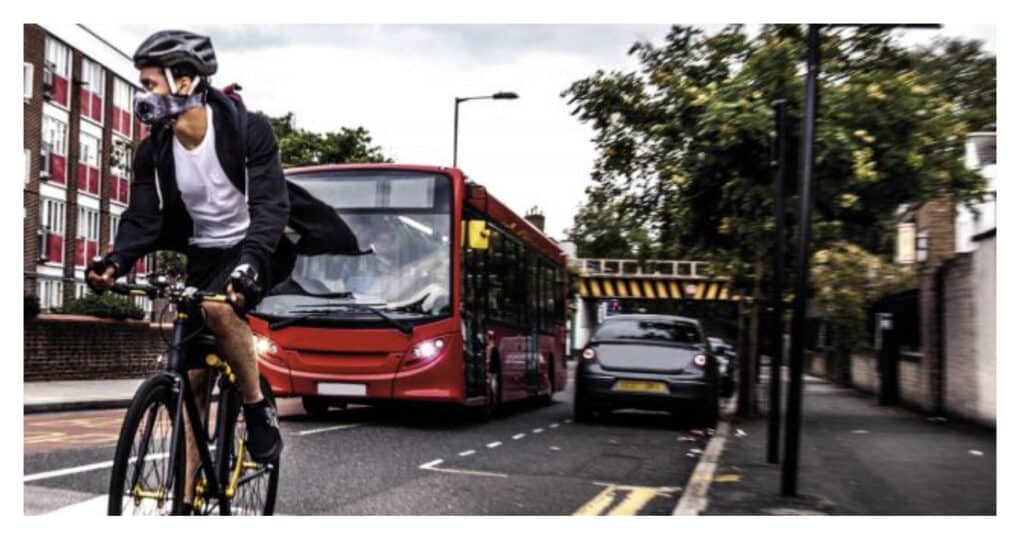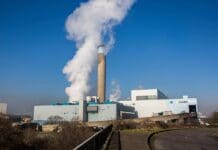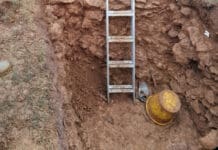East Dorset Friends of the Earth today called upon BCP Council to adopt ambitious targets for its Climate Action Plan and to provide leadership to local businesses, communities and residents.
In a response to the Council’s online public opinion survey about the BCP Climate Action Plan, EDFOE suggests that the survey design is deeply flawedand appeared to be “an exercise in prevarication” whilst trying to “give the impression” that the Council is moving forward1.
EDFOE spokesman, Dr. Martin Price says: “The UK Committee on Climate Change has identified the key requirements of good public engagement 2. BCP’s approach is inadequate in these terms and the Council website does not provide the information people need to respond meaningfully to the Survey. The results of the survey are unlikely to move the debate forward”
Dr. Price adds: “The Council has the powers to reduce about a third of the greenhouse gas emissions in the BCP area 3. We are asking them to adopt a joined-up approach to tackling the Climate and Ecological Emergencies, with clear policies and emissions targets, to achieve Zero Carbon status by 2030.
PLEASE SUPPORT US FOR JUST £2 A MONTH
Response to BCP Climate Change Questionnaire
East Dorset Friends of the Earth
It is a serious indictment of the BCP Council that it has taken Councillors and Officers 18 months to produce this inadequate and unsuitable attempt to engage with public opinion. It is over a year since the Council produced its Draft Action Plan, during which time we have seen a lack of urgency in dealing with the twin crises of climate change and biodiversity collapse.

We now face the twin challenges of planning a path to recovery from the impact of the Coronavirus Pandemic and the realisation that the UK is failing to hit its carbon emissions targets.
The following comments are divided into two sections:
- A critique of the design of the Public Opinion Survey,
- A considered response to the issues which it raises.
Design of the Questionnaire
- The Committee on Climate Change1 has stated that successful public engagement depends upon three elements:
- “Involvement of people in decision-making, not just persuading them to change, as part of a national conversation on the options available for achieving Net Zero;
- “Trusted information available about the choices being made in the UK’s transition towards Net Zero, the reasoning behind and impact of these choices as well as the provision of information available at critical decision points, such as buying a new car or home, delivered using trusted messengers and intermediaries.
- “Educating the public on the need for climate action to reduce emissions and to adapt to climate change, on the options available for reducing emissions, and on the challenges and opportunities likely to arise during the transition.” (p.32)
The Council’s Survey is an inadequate response to i. It is not supported by a suitable information base to enable people to respond to the survey questions (ii.). Neither does it, or the Council’s website, provide easily accessible information to promote iii. By comparison with the recent consultation by Dorset Council on its Climate Change Action Plan – which was by no means perfect – and its excellent and accessible website, this effort by BCP Council is woefully inadequate.
- The introduction to the Survey contains assumptions which could bias the results. For example, the target date of 2050 for action is no longer accepted as credible by experts. The Committee on Climate Change has stated that the target should be “a reduction in UK emissions of 78% by 2035 relative to 1990, a 63% reduction from 2019.” 1 The United Nations Environment Programme has gone further and suggested a 2035 target for Zero Carbon 2.
- The Survey states “We would like to know what you think about our plan in the light of Covid-19.” As far as we can see, none of the questions relate to a post-Covid response, and the Council fails to explain why and how Covid will affect its plan. In our view, the Covid 19 pandemic has changed the context for climate change action, since the Council published its first Draft Action Plan (December 2019): the scope for faster and deeper cuts in greenhouse gas emissions has increased – with reductions in travel, changes in work patterns, and with the realisation that investment in green and fair economies is the best way of future-proofing economies and societies against further such global threats.
- The survey format is poorly constructed. The use of a bipolar option scaleis unsuitable for some of the questions; in several cases a ranking system would be more appropriate, most particularly the “Priorities” section. Of the 5 “Priorities”, it is surely a legal requirement that the Council “should consider the financial and economic effects on its residents and businesses of all its decisions” – not an Option (see below). Furthermore, it is also an inevitable corollary of declaring a Climate and Ecological Emergency that the Council“should consider the climate change impact of all its decisions” – anything else would be a dereliction of duty!
- Limiting choices to “3 Actions” in the sections on the Action Plan is misleading. It suggests to the public that it is possible (or even desirable) to de-prioritise or reject some options. In most cases all of the proposed actions are needed (and more).
As we have stated, a ranking approach would be more appropriate.
- The action points confuse a number of distinct elements of an appropriate strategy. It is essential to distinguish between:
- Actions needed to maintain and improve ecosystems and species diversity,
- Actions needed to reduce greenhouse gas emissions by 7.6% pa.
- Actions needed to reduce current greenhouse gas levels by carbon capture or “sequestration”
- Actions needed to mitigate against the unavoidable impacts of current levels of global heating, and those additional impacts which cannot be prevented by early actions to tackle a – c above.
This Survey has questions on natural habitats in several sections – opening the prospect of contradictory and unhelpful responses. For example, it is possible to give a high priority to planting trees and reducing flood impact in the Section on Nature, and to give these low priority in the Section on Planning and Land Use. We have always advocated a “joined up” approach to planning, transport, economy and conservation – the Survey serves to foster a confused and disaggregated way of thinking.
- We understand the Council’s wish to elicit views on the various actions that can be taken. However, by dividing the response into categories, a false impression of the potential solutions is conveyed. For example, the section on Planning and Land Use fails to explain that decisions taken on the nature and location of future housing will have impacts on the ability to adopt particular options for travel (Transport). Planning policy is the main mechanism available to the Council to influence sustainable local energy production and more efficient consumption (see below for CCCUK comments). What is needed is a vision of how these inter-related actions will best work to reduce emissions. (To this end we recommend the Introduction section of the new Draft Local Plan for Dorset, and our own submission to the Dorset Local Enterprise Partnership3).
- There is no section asking about Economic Activity, despite the Survey’s claim that the exercise is part of the Council’s plans for a Green Recovery from Covid 19!
- “Your Thoughts About Climate Change”: The purpose of this section is very unclear. Is the Council proposing to ignore those responses from people who don’t believe climate is changing, or that it is anthropogenic? Or are Climate Change deniers to be given equal weight to the overwhelming expert view of say the Committee on Climate Change? In short, the Survey appears to work on the premise that all opinions are of equal value – even if they have no basis in factual evidence! We fully accept that there is a need to enter into a dialogue with the public and stakeholder groups about how we respond to the fact of anthropogenic climate change. As the Committee on Climate Change1 has said, our response to Covid provides “an opportunity to embed the new social norms” (p.15) through policy shift. What is required is a clear summary of the Council’s Action Plan on which to build the dialogue; neither the Draft Action Plan (which we have already shown to be weak and inadequate 6), nor the largely self-justifying BCP Annual Report currently achieve this.
As a result, we consider that the outcomes of this Survey risk being of little use to the development of a coherent BCP Climate and Ecological Emergency Action Plan. It appears to be an attempt by the Council to convey the impression that it is moving forward, while in fact being an exercise in prevarication.
Response to the Survey Questions
East Dorset Friends of the Earth wish to submit the following comments on the questions asked in this survey. Our Members have been encouraged to make individual responses.
- Our planet’s climate is changing as a result of human activity. Heatwaves and wildfires, more frequent extreme weather events (e.g. storms and floods), and rising sea levels and coastal erosion are all consequences with financial and policy implications for BCP.
- Many animal and plant species, even entire habitats, are facing extinction due to climate change and as a result of other human activities – farming and deforestation, pollution from transport, industry, toxic waste disposal (including plastics and nuclear waste), mineral extraction, over-fishing or just visitor pressure. In general, these are the combined effects of too many people, consuming too much, often of the wrong kind of products.
- The impact of climate change is greatest on less affluent people and countries. In particular, it leads to reduced food or water availability, which in turn increases political unrest and conflict; it also drives mass migrations, deforestation and land degradation. Combined with poverty, lack of access to land, lack of clean water and sanitation, insecure employment, food shortages and lack of resilience in the face of increasing disease and natural disasters, the effect is to force poor people to respond in ways which only worsen the climate and ecological crisis.
- The impact of climate change will fall heaviest on future generations, and on the poorest – but it already adds to the burden of prices and taxes on everyone today. For example, flood and storm damage is devastating for the victims – but we all pay through increased taxes and insurance premiums. Probably the biggest cost is through the effects of climate change and pollution on human health.
Priorities
The Committee on Climate Change (CCCUK) Report: Local Authorities and the Sixth Carbon Budget4 has noted that “Local authorities have powers or influence over roughly a third of emissions in their local areas.” (p.3), and that to deliver this will require “coherent policy and powers”. Sadly, we see little evidence in this Survey, or in the Council’s actions to date which indicates such coherence of thought or policy
We accept that it will require pressure from the Council (and others) on Central Government to bring forward additional resources and powers to enable BCP to contribute further towards the two-thirds of emissions it currently has little power to affect.
Responding to the Climate Change and Ecological Emergencies will require two attributes from the Council which to date, have also not been particularly evident: Ambition and Leadership.
BCP Council should consider the climate change impact of all its decisions. It should also
consider the financial and economic effects on its residents and businesses of all its decisions. This does not just mean continuing previous investment practices – these have in many cases been part of the cause of the climate and ecological problem. Instead, financial decisions must be based upon calculations about the environmental and social costs of policy decisions (the “externalities” such as the pollution and health effects of road building, the impact of habitat loss or of new build housing on flood patterns). As the CCCUK states, local authorities have:
“an overarching role to support the economic, health and social wellbeing of communities”. (p,5)
As Local Planning Authorities they also have specific responsibilities under the National Planning Policy Framework5. This states that “planning policies and decisions should play an active role in guiding development towards sustainable solutions” (p.5).
The CCCUK identifies the following areas within which local authorities have the capacity to influence rates of carbon emissions and to tackle the causes and consequences of climate change:
“• Planning powers over buildings and transport
• Enforcement of building regulations
• Powers to ensure buildings meet basic energy efficiency standards
• Duties to prevent homelessness and prevent hazards in housing
• Duties to manage risk including climate risks such as flooding
• Duties and powers to protect the environment, wildlife and heritage
• Duties to collect and dispose of waste
• Borrowing and investment powers”
East Dorset Friends of the Earth has already submitted detailed suggestions in relation to these areas in our Response to the Draft Climate and Ecological Emergency Action Plan 6. In that Response we expressed the view that the Action Plan “falls far short of what is needed to respond in a sufficient and timely manner to the Climate and Ecological Emergency.” We also expressed the hope that
“…. BCP sees itself as occupying a leadership role in the local community: to provide a role-model for other businesses, partners and the wider community, providing both templates for action and access to tools developed in-house, to enable others to make transitions rapidly.” (pp.1-2).
Without wishing to repeat unnecessarily points we have already made to BCP Council, we make the following responses to the specific sections of the Survey. As such, in an effort to assist the Councillors and Officers to clarify their thinking, we have placed our responses under the four headings suggested in our comments (section 6 on the Questionnaire) above:
- Actions needed to maintain and improve ecosystems and species diversity.
- This is the weakest area of the BCP Action Plan. It suggests that the Council does not yet fully appreciate the scale of the biodiversity crisis or the extent of action needed to reverse the decline in species and habitats. Measures such as “new buildings replace lost wildlife habitats with those of equal or higher biodiversity value”, suggest a feeble attempt to justify damaging development. We strongly support efforts to restore degraded habitats and to reintroduce disappearing species. However, the most cost effective policy is always to avoid destroying habitats in the first place. Ecosystems take thousands of years to develop and cannot be recreated overnight – local heathland and ancient woodlands are good examples. 7
Actions are needed that will prevent habitat and species destruction worsening, and will hopefully reverse it. We have previously advocated reducing hard surfacing on building projects and increasing planting on and around buildings – but these are not just about “nudging” individual behaviours. Helping wildlife across roads using bridges and underpasses and “living bridges” will help. However, the Council should require these solutions, as part of its Local Plan policies and through development control and planning enforcement.
- “Protect wildlife and natural places, and bring back wildlife that used to live here”: it is a given that our few remaining semi-natural open spaces should be conserved and improved. However, his requires a full understanding of how ecosystems work – it is not just “old drainage systems” which encourage biodiversity, but woodlands, heaths, sand dunes, and marshland. Accepting the need to conserve and enhance biodiversity means that the Council must recognise that growth of population and affluence in BCP automatically brings with it increased pressures on species and ecosystem resilience. More houses and tourists means more traffic, more pollution, more pressure on wildlife and erosion of habitats (including those essential as natural protections against flooding and coastal erosion).
- Banning activities that are polluting, harmful to wildlife or damage habitats should (and sometimes is) already be enshrined in local plans and policies. The problem is that the Council frequently ignores such considerations in its own planning decisions.
- Measures to encourage community involvement and to encourage responsible building design (and construction practices) have been successfully, if sporadically used by councils in BCP. The Council must invest serious money and effort into educating and engaging the public – and it must lead by example.
- Actions needed to reduce greenhouse gas emissions by 7.6% pa.
- BCP Council should set a target of making the area carbon neutral by 2030. It is also essential that we “ensure future planning rules take air quality and pollution into account ”But, if we are to meet this ambitious 2030 target, it will require a thorough overhaul of the Council’s economic, land-use, transport, waste handling and other policies, including the recently published “Big Plan”. This overhaul will be needed to bring local action into line with the emerging UK plans – see CCCUK 1.
- BCP Council should actively seek to encourage residents and visitors to change their behaviour, as an essential element in moving the whole area to Zero Carbon status by 2030. Simplistic ideas, such as the Survey’s suggestion that natural burials rather than cremations should be encouraged, may have their place – but it is the large-scale policy shifts (listed above from CCCUK) which will make the difference.
- BCP Council should prioritise schemes that enable residents, visitors and local businesses to become carbon neutral. Measures include:
- advice to residents and businesses on how to save energy;
- advice on grants available to householders to improve the efficiency of their homes;
- support to enable households and businesses to generate more of their own renewable energy;
- strengthened planning controls to ensure that new and refurbished buildings meet the highest levels of energy efficiency and waste minimisation;
- support to tenants and their landlords to improve the energy efficiency of rented accommodation;
- Council investment in upgrading the efficiency of its own council housing stock.
[Some of these issues appear in both the Planning and Energy sections of the Survey!]
- Reducing emissions requires a rapid shift to renewable energy. BCP Council should identify large sites for renewable energy production, and use financial stimulus measures to attract appropriate investment If it has the resources, it should invest in supporting Community Energy projects, which allow groups of residents or businesses to generate (and store) their own energy. It should be noted, however, that investment in energy conservation is the most cost effective way of reducing emissions and of creating jobs. Only 40% of housing in BCP is adequately insulated, and 11% of households live in fuel poverty 11. This should be a focus for Council actions. Such investments can be constructed in such a way as to impose no net cost to the Council, as they would involve a payback element from the energy savings generated – a form of gilt-edge investment for part of the Council’s reserves.
- We would encourage the use of development charges to pay for investment in schemes which will reduce emissions.
- Transport is responsible for 22% of the UK’s carbon emissions 8. The CCCUK advocates “a reduction in the amount we use cars by an average of 2–5% per decade” as part of our pathway to a Zero Carbon future (ibid. p.50). Limiting the amount of parking in new building and locating new build near to sustainable transport routes is part of that solution. The list of suggestions in the Transport section of the Survey should all be used, and need to be supported by policies within the Local Plan:
Making walking, cycling (including bike share) and public transport the safe, convenient and preferred options
Have community car club schemes for people to hire cars when they need them
Involving more businesses in reducing staff car use (eg. using virtual meetings and flexible working)
Reducing emissions from shipping at the Port of Poole [and in the Harbour]
Use of parking charges in Council car parks, businesses and ‘out of town’ shopping centres to reduce travel use and encourage other forms of travel
Road charging at peak, ca-free days and car exclusion zones [Clean Air Zones]
Reducing pollution from air travel, and cars driving to airports
Encouraging more electric and hydrogen vehicles [the latter best suited to goods vehicles and public transport
Smart integrated ticketing, including smart cards and apps [which assumes cooperation between providers, including licensed private hire vehicles]
Park and Ride schemes [will only work for visitors if parking controls are strengthened, eg. through resident parking permits]
Making roads around schools safer and encouraging active travel to school
Other possible ideas are more related to public education. For example, adopting a Green Tourism Strategy based on visitors arriving by public transport, using walking and cycling during their stays, and occupying registered accommodation is essential. Many aspects of travel also require education and encouragement of new behaviours. Above all, it requires positive investment in active travel and public/mass transport systems.
viiAgain, the section on Waste contains some good elements, but much confusion:
“Becoming a plastic-free area” implies a total end to “single-use plastics”, not just a “reduction”. Reducing unnecessary waste will result in less recycling, so why are more recycling locations needed? There is clearly scope for improved public education here – this extends to local businesses; East Dorset FOE has repeatedly asked the Council to set up a Plastics Forum, to include all the major supermarkets, to tackle this issue 9. The way to reduce the costs of waste collection and disposal to the Council (and hence to Council Tax payers) is to reduce the amount of waste generated and to make the companies that create the waste responsible for the cost of disposal (the polluter pays principle). In this way, the issue of transporting waste largely disappears, through the operation of the market.
- Actions needed to reduce current greenhouse gas levels (carbon capture or “sequestration”
- The Council suggests “buying land to plant trees or to use other ways which help prevent climate change” and “using vacant land for tree planting or drainage”. Whilst carbon capture can reduce the impact of burning fossil fuels and of other activities which release greenhouse gases – ultimately they are not ways of preventing climate change. Only reducing the emissions of carbon gases can do that, and actions which reduce the use of fossil fuels and accelerate the switch to renewables should be the priority focus of policies.
- The Council should beware of putting much faith in emerging technologies for carbon capture. For example, in the case of carbon capture and storage in fossil fuel-based energy production, the evidence 10 suggests that only “about 0.1% of annual global emissions from fossil fuel” have been saved by the technology. The lead times and costs probably mean that technical solutions will come on stream too late to contribute to the cuts in carbon emissions needed by 2030. In short, using less energy, and from renewable sources, is the cheapest, quickest and easiest strategy for tackling the Climate Change crisis.
- Actions needed to mitigate against the inevitable impacts of current levels of global heating, and those additional impacts which cannot be avoided by action summarised under 1 – 3 above.
- It makes sense to ensure that “new buildings are designed to reduce the risk of flooding”, but this should not be necessary if new buildings are sited outside areas of flood risk. The key policy priority is to ban all development from areas of flood risk – including those areas where development will cause increased runoff leading to flooding downstream.
- The Council suggests “leaving land for things to grow naturally to help absorb carbon” and “encouraging wildlife habitats which can help reduce flooding and store carbon”; but its policies, especially in relation to house building and transport planning indicate an inbuilt bias against such prioritisation of open land, and in favour of more development.
- What is more, “mitigation” is as much an admission of failure as it is a solution! If we are relying on mitigation, it means that we have failed to reduce biodiversity loss, runaway climate change, and the environmental, social, health and economic costs which they will bring.
Targets
Meaningful reductions in greenhouse gas emissions will not be achieved unless the Council sets targets for the policies it adopts. East Dorset Friends of the Earth has previously proposed targets based upon a comparative analysis of all local authorities in England and Wales 11:
- Bournemouth, Christchurch and Poole should reduce emissions by 13% per year,
- Upgrading the insulation of 10,638 homes per will ensure all homes are properly insulated by 2030.
- BCP should aim for 6,528 eco-heating systems to be fitted to houses every year.
- 70% of people should be commuting by public transport, cycling, and walking by 2030, (compared with 26% in 2019).
- A minimum of 200 public EV charging points should be installed by 2030, (compared to 36 in 2019).
- BCP is proposing an additional 15,000 new homes – this would require 120MW installed capacity if it was to be powered by renewable sources. By comparison, the Navitus Bay Windfarm could have provided between 630 and 970 MW – enough for between 78,750 and 121,250 houses using this calculation!
- BCP should seek to double tree cover from 12% (2019) to 23% (2030).
- BCP should aim to reuses, recycle and compost 70% of its household waste by 2025 (compared to 53% in 2019); however, it should aim to become a Zero Waste authority by 2030.
- BCP Council should work with Dorset Council to divest from fossil fuel companies, in its pension funds and other investments, as soon as possible.
Doing things differently and working together
This section appears to contain very confused thinking.
Many suggestions are clearly essential to public engagement with the profound changes in thought and behaviour which are required if the climate and ecological emergencies are to be addressed:
- *Agree with other organisations a plan to become a carbon neutral area by 2050
- *Help businesses introduce their own commitment to care for the environment
- *Share how we are reducing our carbon emissions with other cities worldwide
- *Exchange good ideas about tackling climate change with other organisations
- *Tell everyone how we are doing in tackling the Climate and Ecological Emergency
- *Help residents to do their bit to tackle climate change
Others really belong in the Actions section:
- the technology for “generating renewable energy” is largely proven, although advances in battery storage are needed; “emissions that might remain after 2050” can and should to be dealt with by 2035 at the latest;
- “new technology to improve how we get around” largely already exists – what is required is commitment to investment in walking, cycling and public transport;
- Support for businesses, organisations and community groups is a given, and examples have already been included in previous sections of the Survey;
- As we have already argued, much “air pollution” is in the form of greenhouse gases. The biggest remaining threats come from particulate matter (PM 2.5s) – much of which comes from vehicle tyres and brakes. Switching to electric cars will do nothing to resolve this; we either have to reduce total vehicular traffic (as CCCUK suggests) or find affordable technical solutions, such as trams or light rail, (but we don’t have time to wait for ‘something to turn up’!).
What is required is a coherent Public Engagement Plan. This should be worked out in discussion with experienced stakeholders, not imposed by the Council. Best practice from other local authorities (and not just in the UK) should be used to inform this process. Above all, as the Survey shows, there is still considerable scope for education of Councillors and Officers on these issues. East Dorset Friends of the Earth will be happy to make its own expertise and contacts available to support the Council in these endeavours, if requested.
East Dorset Friends of the Earth
January 2021.
References:
1 Policies for the Sixth Carbon Budget and Net Zero, Committee on Climate Change,
December 2020.
2“..we now must deliver deep cuts to emissions – 7.6% each year… If we don’t do this,
the 1.5C goal will be out of reach before 2030,” UNEP Executive Director, Inger
Andersen (26/11/19). Continuing this trend would mean achieving net zero carbon in
2035.
3Contribution to the Dorset Investment Prospectus, East Dorset Friends of the
Earth, November 2020
4Local Authorities and the Sixth Carbon Budget, Committee on Climate Change,
(December 2020)
5National Planning Policy Framework, July 2018.
6 Response to the BCP Draft Climate and Ecological EmergencyAction Plan (2020
– 2030/2050), February 2020.
7A recent report by The Royal Botanical Gardens at Kew makes this point clearly. ‘It
takes at least a century to restore damaged forests. Keeping forests in their original
state is always preferable; undamaged old forests soak up carbon better and are more
resilient to fire, storm and droughts. “Whenever there’s a choice, we stress that halting
deforestation and protecting remaining forests must be a priority,” said Prof Alexandre
Antonelli, director of science at Kew. (quoted on BBC News website
https://www.bbc.co.uk/news/science-environment-55795816 26/01/21)
8The Sixth Carbon Budget: The UK’s path to Net Zero, Committee on Climate
Change, December 2020.
9Plastics – how green is your supermarket? Supermarket Plastics Survey 2020: A
Report by East Dorset Friends of the Earth.
10A Review of the Role of Fossil Fuel Based Carbon Capture and Storage in the
Energy System, Tyndall Centre for Climate Change Research/Friends of the Earth
Scotland, December 2020.
11How well is Bournemouth, Christchurch and Poole doing to meet the climate
emergency challenge? Friends of the Earth UK / Tyndall Centre for Climate Change Research, October 2019.
PLEASE SUPPORT US FOR JUST £2 A MONTH












